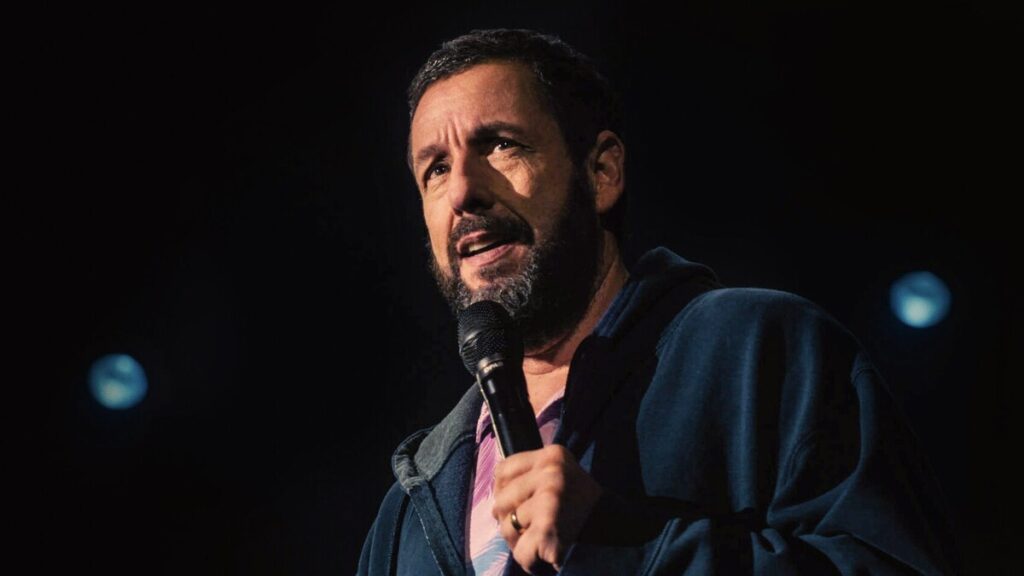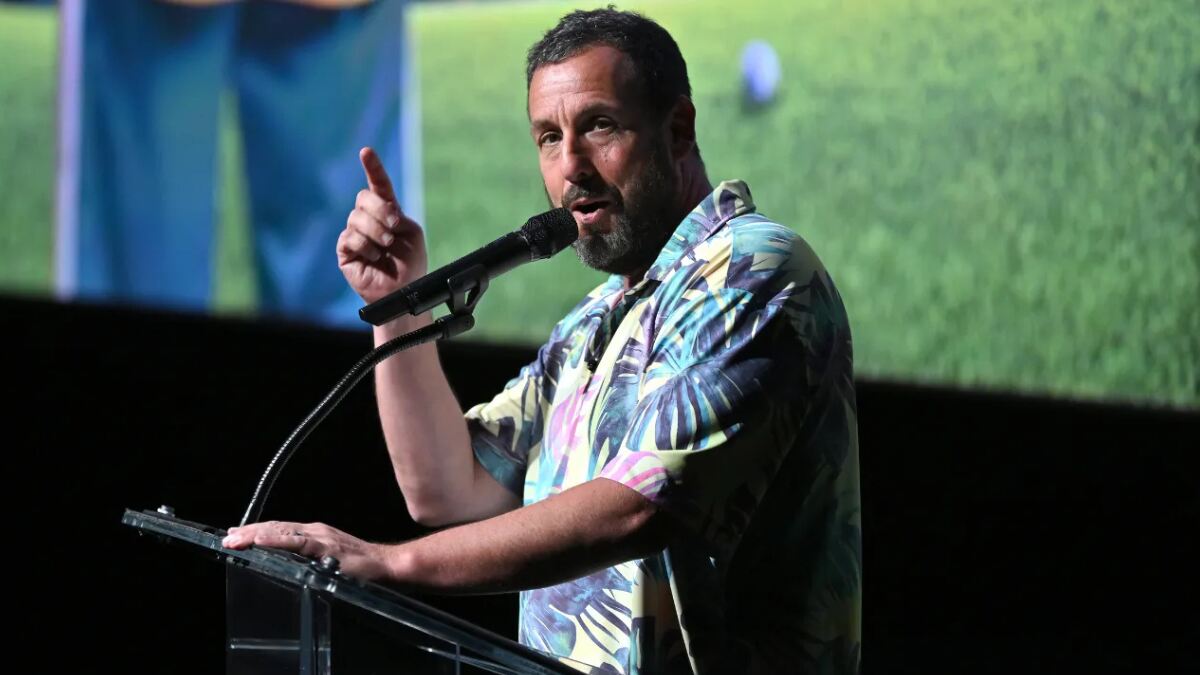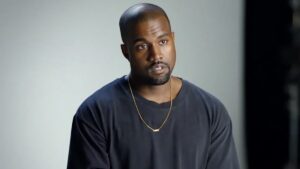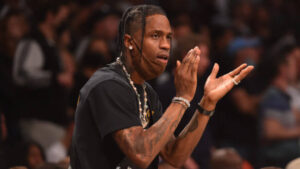“The price is wrong, b**.”**
It wasn’t Shakespeare. It wasn’t even a particularly clever punchline. But when Adam Sandler yelled those five words before sucker-punching Bob Barker on the golf course in Happy Gilmore, a generation of fans howled — and a generation of critics groaned.
That single scene, absurd and unforgettable, sums up everything Hollywood has long gotten wrong about Sandler. Dismissed as lowbrow. Written off as juvenile. Pegged as the guy who made fart jokes profitable. What those same critics failed to notice? He was also quietly becoming one of the most durable, self-contained forces in modern entertainment — a one-man ecosystem of comedy, loyalty, and billion-dollar streaming deals.
Over the course of three decades, Sandler has gone from frat-boy punchline to dramatic dark horse, from box-office cash cow to Netflix’s not-so-secret weapon. The legacy he’s built isn’t just paved in laughs — it’s in reinvention, risk-taking, and the rare ability to own his flaws without apology.
This isn’t a defense of Adam Sandler. It’s a reckoning. A look at how the man we all thought we figured out — in sweatpants, with a goofy grin — just might be the last true Hollywood wildcard.
A Goofy Start with Serious Staying Power
The SNL Days and the Birth of a Cult Personal
Before Adam Sandler was a household name, he was that guy on Saturday Night Live — the one with the guitar, the voices, the weirdly heartfelt songs about Thanksgiving and Lunch Ladies. In the early ’90s, when grunge ruled the airwaves and irony was currency, Sandler’s sketches hit a different note. His characters weren’t cool or clever — they were loud, needy, endearingly dumb. And that’s why they stuck.
Opera Man belted fake news with faux sophistication, Cajun Man reduced sentences to single syllables, and characters like Canteen Boy walked the tightrope between awkward and oddly lovable. Sandler brought emotional commitment to even the most absurd roles, turning throwaway bits into cult classics. More than just goofy, his performances captured a kind of Gen X vulnerability wrapped in chaos. He wasn’t just being funny — he was being himself, unapologetically. And that, in the middle of an SNL cast stacked with legends, made him unforgettable.
Happy Gilmore and the Sports Comedy Archetype
He couldn’t skate, but he could swing. Happy Gilmore didn’t just make golf funny — it made it loud, violent, and somehow heartfelt. Released in 1996, the film turned the country club sport into a full-contact circus, anchored by Sandler’s screaming, hockey-obsessed misfit with a heart of gold. What made Happy Gilmore iconic wasn’t just the punchlines (“You’re gonna die, clown!”) — it was the weird emotional sincerity underneath the chaos.
The film flipped the traditional sports movie on its head: the underdog wasn’t honorable or disciplined — he was angry, broke, and hilariously out of place. Yet we rooted for him. That tension — between absurdity and unexpected heart — became a blueprint for the “Sandler formula”: slapstick on the surface, sentiment at the core.
The Sandler Formula — Loyal Casts, Absurd Humor, and Box Office Gold
The “Happy Madison” Machine
In 1999, Adam Sandler founded Happy Madison Productions, and in doing so, he stopped asking Hollywood for permission. The company didn’t just give him creative freedom — it built him a sandbox where he could cast his friends, write his jokes, and sidestep studio meddling entirely. That’s why you see Rob Schneider, Kevin James, and David Spade over and over again — not out of laziness, but loyalty and brand familiarity.
Happy Madison became synonymous with a very specific flavor of comedy: broad, brash, and defiantly critic-proof. It was mocked as formulaic, but there was calculation in that comfort zone. By cultivating a troupe-like atmosphere, Sandler ensured fast production cycles and a built-in fan base. The downside? Stagnation. Critics slammed the later films as indulgent or lazy — but the strategy worked. Box office hits like Grown Ups and 50 First Dates proved that Sandler wasn’t chasing acclaim; he was building an empire on his terms.
Critical Misses, Audience Hits
Adam Sandler may be the most “critic-proof” actor of his generation — a performer whose movies routinely get panned by reviewers but rake in millions anyway. The Ridiculous 6 holds a dismal 0% on Rotten Tomatoes, yet it was reportedly the most-watched Netflix title upon release. Grown Ups scored just 10% from critics, but grossed over $270 million worldwide.
What explains this disconnect? Partly, it’s trust. Audiences know what they’re getting with a Sandler film: familiar faces, crude humor, and a dose of heart. Critics often dismissed this formula as lazy or juvenile, but to fans, it felt consistent — even comforting.
As one Letterboxd reviewer put it, “It’s not high art, but it’s honest about what it is.” That authenticity, however goofy, created loyalty. Sandler didn’t make movies for tastemakers — he made them for people who wanted to laugh with their friends. And that made all the difference.
Beyond the Laughs — Dramatic Turns and Industry Respect
Punch-Drunk Love to Uncut Gems — The Serious Side
When Punch-Drunk Love premiered in 2002, audiences weren’t sure what to make of it. Adam Sandler — the king of juvenile rage-comedy — was suddenly fragile, subdued, and achingly human. Paul Thomas Anderson saw in him what most of Hollywood hadn’t: a man who could weaponize awkwardness into vulnerability. Critics raved. The New York Times called his performance “astonishing.”
Seventeen years later, the Safdie brothers handed Sandler the role of a lifetime in Uncut Gems. As Howard Ratner, a desperate, fast-talking jeweler spiraling toward ruin, Sandler was magnetic — paranoid, erratic, electric. The performance was universally hailed; The Atlantic said it “redefined what Sandler was capable of.”
What unites both films isn’t just their acclaim — it’s how they peel back the persona. Gone are the pratfalls and sentimental endings. In their place: characters walking emotional tightropes, full of rawness and risk. These weren’t stunts. They were revelations — proof that beneath the man-child mask was a dramatic actor just waiting to be taken seriously.
Awards, Snubs, and Redemption
When Uncut Gems hit theaters, the Oscar buzz was deafening. Critics hailed Adam Sandler’s performance as the best of the year. He swept nominations from the Independent Spirit Awards, the National Board of Review, and dozens of critics’ circles. But when the Academy Awards rolled around? Nothing. Not even a nomination.
Sandler took it in stride — joking that if he didn’t get recognized, he’d go back to making bad movies “on purpose.” But the snub stung. After all, this wasn’t just a solid performance — it was transformative. His omission sparked outrage online and comparisons to other actors who’d made similar leaps, like Jim Carrey (The Truman Show, Eternal Sunshine) or Eddie Murphy (Dreamgirls), both of whom were also famously snubbed.
There’s a strange irony in Sandler’s awards arc: for years, he was overlooked because his films were too silly. Then, when he finally delivered high art, he was still overlooked — perhaps because he’d been too silly for too long. The redemption, then, isn’t in the gold statue. It’s in the fact that people finally saw what he could do.
The Streaming Power Play — Sandler’s Billion-Dollar Bet with Netflix
Disrupting the Studio System
In 2014, Adam Sandler signed a four-movie deal with Netflix reportedly worth $250 million — a move that blindsided Hollywood and baffled critics. Why would a prestige-chasing tech company tie itself to the guy from Jack and Jill? But Netflix had the data. As Chief Content Officer Ted Sarandos put it: “His movies are always among the most viewed on our service.”
The bet paid off. Films like Murder Mystery drew over 170 million hours watched in a single month. In 2020, Netflix extended the deal, citing Sandler’s “unique global appeal.” More than just a cash grab, the deal signaled a shift in power: stars no longer needed studios — they needed platforms.

Sandler’s move redefined talent autonomy. He got creative control, global reach, and a built-in distribution channel, all while bypassing box office pressure. It was a quiet disruption — no press junkets, no awards campaigns. Just content, streaming endlessly, and reshaping the business while no one was looking.
Content that Travels: Global Appeal of Sandler Comedies
Adam Sandler’s comedies don’t just play well in the U.S. — they travel. Netflix data shows his films consistently rank in the top 10 across countries like Brazil, Germany, and India. What makes them click globally? It’s not just the slapstick — though that helps. It’s the universal emotional language of his storytelling: family bonds, loyalty among friends, the lovable screw-up trying to do right.
His characters may yell and stumble, but they’re always rooted in something recognizable — a parent’s love (Big Daddy), sibling rivalry (The Week Of), or romantic missteps (The Wedding Singer). Add in physical humor that transcends language barriers, and you get films that require little cultural translation.
There’s also a comfort-food quality to Sandler’s world — familiar casts, sunny settings, low-stakes plots — that resonates across borders. In a global market where not every joke lands, Sandler’s mix of sentimentality and silliness somehow does. It may not be highbrow, but it’s highly relatable.
In Good Company — How Sandler Stacks Up Against His Comedic Peers
Sandler vs Stiller vs Ferrell vs Carrey
Among the comedy titans of the late ’90s and early 2000s — Sandler, Stiller, Ferrell, Carrey — it’s Adam Sandler who’s navigated Hollywood’s evolution with the most strategic clarity. Jim Carrey chased prestige (The Truman Show, Man on the Moon) but largely bowed out of the streaming era. Will Ferrell doubled down on absurdity, yet struggled to replicate his box office magic in digital spaces. Ben Stiller moved behind the camera, finding acclaim in directing (Escape at Dannemora, Severance).
Sandler? He signed a $250M+ Netflix deal, became one of their most-watched stars, and managed to drop an acclaimed dramatic turn in Uncut Gems without abandoning his comedy roots. His pivot wasn’t a reinvention — it was a quiet expansion.
Legacy-wise, Sandler may not be the flashiest or most decorated, but he’s built the most adaptable brand. Where others aimed to evolve past comedy, he folded evolution into it — and brought his audience with him.
Sandler’s Niche: Sentimentality Meets Slapstick
Adam Sandler’s secret sauce isn’t just in the pratfalls or yelling fits — it’s the unexpected heart that shows up between the jokes. In Big Daddy, beneath the crude gags, there’s a genuine story about responsibility and fatherhood. Click starts as a body-swap comedy and ends as an emotional gut punch about time, regret, and family. Even Grown Ups, often dismissed as a vacation in disguise, carries themes of aging, friendship, and nostalgia.
This blend of sentimentality and slapstick is rare — and it’s why Sandler’s fans stick around. He gives them laughs, yes, but also comfort. His comedies suggest that behind every screw-up is someone just trying to be better — and that’s a deeply human message.
Where others lean into absurdity or cynicism, Sandler builds characters you weirdly care about. That emotional warmth, however buried, turns casual viewers into lifelong loyalists — and helps explain a legacy built on more than punchlines.
My Weekend with Sandler
You don’t expect Adam Sandler to be the first one on set. But there he was — 6:45 a.m., hoodie up, iced coffee in hand, cracking jokes with the grip team like it was a college hang. No entourage. No pretense. Just a guy in basketball shorts and New Balance sneakers, asking if anyone wanted a breakfast burrito.
I’d been invited to observe a few days of filming on his latest Netflix project. What struck me wasn’t the chaos of production or the size of the crew — it was how low-key the star at the center of it all seemed. Between takes, he’d wander over to his wife Jackie, check in on one of his daughters doing homework, then go back to improvising lines with Rob Schneider like they were still in someone’s garage.
Later that weekend, I watched him play pickup basketball with a handful of local kids from the neighborhood. No cameras, no press. Just Sandler — grinning, dishing out assists, calling his fouls.
People love to talk about his “loyalty” or “everyman” image like it’s a branding move. But after a weekend watching him work, joke, and hang, I’m convinced: he’s not trying to be relatable. He just is. And maybe that’s the secret. Behind the billions of streams and the critical reappraisals, Adam Sandler hasn’t changed. He’s still just showing up — same hoodie, same crew, same heart.
Legacy in Motion — How Sandler Is Shaping the Future of Film
Mentorship and New Voices Through Happy Madison
Adam Sandler doesn’t just make movies with his friends — he’s increasingly making space for new voices, too. Take You Are So Not Invited to My Bat Mitzvah (2023), a coming-of-age Netflix hit that starred his real-life daughter, Sunny Sandler, alongside a mostly fresh-faced cast. The film, directed by Sammi Cohen and written by Alison Peck, marked a departure from the usual Happy Madison fare — and a deliberate shift toward younger, more diverse storytelling.
Sandler took a backseat in the movie, letting the next generation shine. And that wasn’t just nepotism — it was mentorship. Behind the scenes, he’s been instrumental in backing new talent, often giving early-career writers, comedians, and directors their first real shot at a mainstream audience.
In an industry where opportunity often feels locked behind legacy, Sandler uses his clout to open doors — not close them. It’s a quiet kind of impact, but one that’s helping shape what comedy — and filmmaking — will look like in the years to come.
A Brand That’s Bigger Than Film
Adam Sandler hasn’t just stayed relevant — he’s become a kind of cultural shorthand. From viral clips of his surprise stand-up sets in L.A. to Gen Z discovering The Hanukkah Song on Spotify every December, his reach goes well beyond the screen. His 2018 Netflix special 100% Fresh, marked a return to his roots, blending music, comedy, and sentiment in a way that felt both nostalgic and current.
Meanwhile, Sandler’s streetwear-in-sweatpants style has turned him into an unexpected fashion meme — dubbed “Unbothered King” across social platforms. There’s something oddly comforting about seeing him courtside in oversized tees and basketball shorts, grinning like he’s still on summer break.
He’s not chasing cool — he is cool, because he doesn’t care to be. That authenticity has made him a multi-generational icon, not just for his movies, but for what he represents: creative freedom, emotional sincerity, and the rare ability to make millions laugh without ever pretending to be someone he’s not.
From Punchlines to Power Moves
Adam Sandler was never supposed to last. He was the yelling guy, the fart-joke guy, the one critics love to loathe. And yet — here we are, three decades in, watching him headline Netflix’s most-watched films, earn critical acclaim in arthouse thrillers, and mentor the next generation of storytellers.
His journey isn’t just about outlasting the punchlines. It’s about quietly rewriting the rules: staying loyal, staying weird, and making exactly the kind of art he wants — whether that’s a dumb comedy with his best friends or a high-stakes drama about a desperate jeweler.
Sandler didn’t evolve to fit the industry. The industry bent toward him.
So what does that say about fame? Maybe that the real power move isn’t reinvention — it’s consistency. Maybe being underestimated is the ultimate edge.
Because what if the joke has always been that we never really got Adam Sandler? And what if that’s exactly how he wanted it?
Mohit Wagh is the co-founder of The Graval with over 10 years of experience in SEO and content strategy. He specializes in crafting data-driven, authoritative content that blends cultural insight with digital growth.





5 thoughts on “The Legacy of Adam Sandler: How a Comedic Underdog Quietly Took Over Hollywood and Streaming”